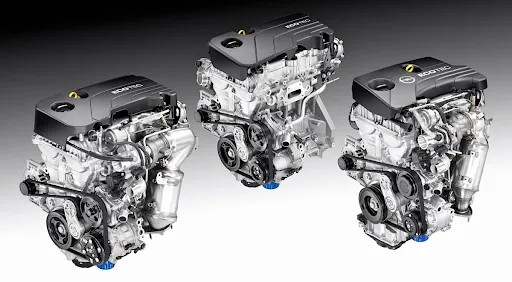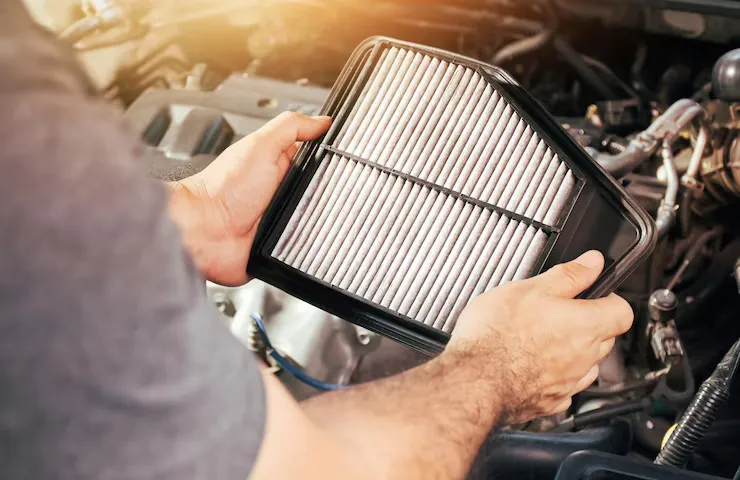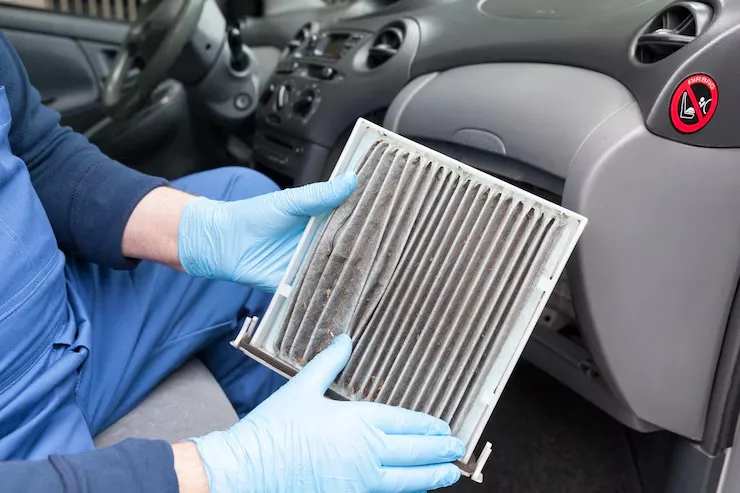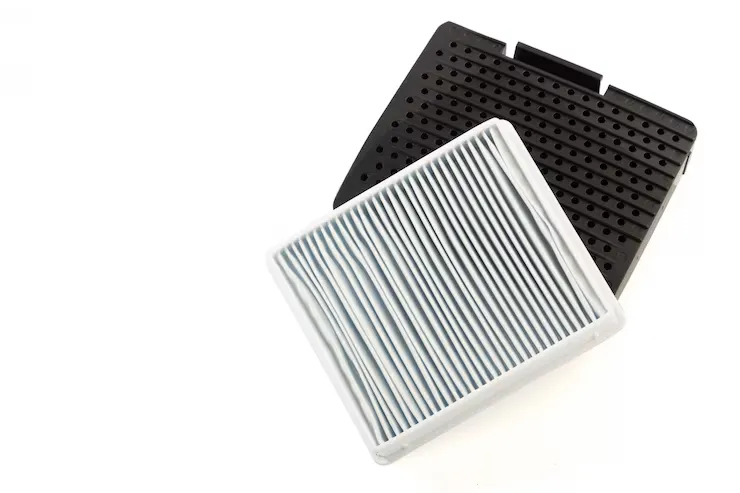Mon - Fri: 8am - 5pm, Sat - Sun: Closed

6-36 Month Warranties
We Ship Local.
Hablamos Español.
Connect with
The Role of Air Filters in Engine Performance
Engine Air Filter Importance
Why Air Filters Matter
Air filters play a vital role in maintaining optimal engine performance by preventing dust, dirt, and other contaminants from entering the engine. By ensuring clean airflow, they support the combustion process, which directly impacts fuel efficiency and overall engine health. A clean air filter allows your vehicle to perform at its best, delivering smooth acceleration and consistent power.
Neglecting air filter maintenance can lead to significant issues such as reduced acceleration, increased fuel consumption, and potential engine damage. Over time, clogged air filters restrict airflow, forcing the engine to work harder and reducing efficiency. Regularly inspecting and replacing air filters according to your vehicle manufacturer’s recommendations is essential to ensure optimal performance and prolong engine life.



A clogged air filter restricts airflow, forcing the engine to work harder and reducing its efficiency. This added strain can result in decreased performance, reduced fuel economy, and increased emissions. Over time, it may also contribute to potential engine wear and damage. To maintain optimal performance, it’s crucial to inspect your air filter every 12,000 to 15,000 miles or more frequently if you drive in dusty or harsh conditions. Regular maintenance ensures clean airflow, promoting better engine health and prolonged vehicle life.
Signs of a Dirty Air Filter

Recognizing the symptoms of a dirty air filter is essential to preventing significant engine problems. Common indicators include reduced fuel efficiency, a misfiring engine, unusual engine noises, or the illumination of the check engine light. These signs suggest restricted airflow, which can affect the combustion process and overall engine performance. If you notice any of these issues, inspecting and replacing the air filter promptly can restore your vehicle's efficiency.
Regular air filter maintenance offers multiple benefits. A clean air filter ensures optimal airflow, enhancing engine performance and fuel economy. Additionally, it prevents dirt and debris from entering the engine, reducing the risk of wear and tear on internal components. By incorporating routine air filter checks into your maintenance schedule, you can improve your vehicle's performance and extend the lifespan of your engine.
Replacing a dirty air filter is a simple yet highly effective step to boost your vehicle’s performance. A clean air filter ensures proper airflow to the engine, promoting efficient fuel combustion and enhancing overall engine power. It also helps maintain better fuel economy by reducing strain on the engine caused by restricted airflow. Additionally, a clean filter prevents dirt and debris from entering the engine, reducing wear on internal components and minimizing the risk of costly repairs. Regular replacement ensures long-term efficiency and reliability.
How to Replace Your Air Filter
Replacing your car’s air filter is a straightforward maintenance task that ensures better engine performance and fuel efficiency. With minimal tools and effort, you can complete the process at home. The first step is to locate the air filter housing, which is typically a black plastic box near the engine. This box is usually secured with clips, clamps, or screws. Open the housing carefully to access the air filter inside, being mindful not to damage the surrounding components.
Once open, remove the old air filter and take a moment to inspect it. A clean filter will appear light and relatively free of dirt, while a dirty one will be clogged with dust and debris. If the filter is excessively dirty or clogged, replacing it is essential. Before inserting the new air filter, ensure it matches the old one in size, shape, and specifications. Position the new filter snugly in the housing, taking care to align it properly for an airtight fit.
After the new filter is in place, close the housing securely. Reattach any clips, clamps, or screws that were removed, ensuring the housing is tightly sealed. Improper closure or misalignment can compromise the filter’s effectiveness and potentially damage the housing. To avoid errors, consult your vehicle’s owner manual for specific instructions regarding the air filter’s location and replacement process.
Regular air filter replacement is a crucial part of vehicle maintenance. Most manufacturers recommend replacing the air filter every 12,000 to 15,000 miles or more frequently in dusty driving conditions. A clean air filter allows for optimal airflow, improving fuel combustion and engine efficiency. This simple and cost-effective task can reduce harmful emissions, prevent unnecessary engine wear, and ensure a smoother, more environmentally friendly driving experience
Benefits of Clean Air Filters
A clean air filter provides multiple benefits, the most notable being improved fuel efficiency. By ensuring that the engine receives the optimal amount of air for combustion, it promotes a balanced fuel-to-air ratio. This balance not only enhances the combustion process but also results in better mileage and reduced fuel costs. Drivers who maintain clean air filters often notice significant savings over time, particularly in vehicles used for daily commutes or long-distance travel.
At Houston Engines, Additionally, a clean air filter plays a vital role in enhancing engine performance. It allows the engine to breathe freely, ensuring smoother acceleration and more consistent power delivery. Beyond performance, clean filters act as a protective barrier, preventing dust, dirt, and other contaminants from entering the engine. By keeping these harmful particles at bay, the filter reduces internal engine wear, helping to extend the engine's lifespan. This simple yet essential maintenance task is a cost-effective way to ensure both optimal performance and long-term reliability for your vehicle.

Maintaining Optimal Engine Health
Regular air filter maintenance is essential for keeping your vehicle in optimal condition. The air filter plays a crucial role in ensuring the engine operates efficiently by supplying clean air for the combustion process. A well-maintained air filter helps maintain the right air-to-fuel ratio, which directly impacts fuel efficiency and engine performance.
One of the primary benefits of routine air filter maintenance is the reduction of harmful emissions. A clean filter prevents dust, dirt, and other contaminants from entering the engine, allowing it to burn fuel more cleanly. This not only helps the environment but also ensures compliance with emission standards, keeping your vehicle running smoothly.
Neglecting air filter maintenance can lead to a host of problems, including decreased fuel efficiency, sluggish acceleration, and increased engine wear. Over time, clogged filters force the engine to work harder, which can result in premature wear and costly repairs. Regular inspections and timely replacements are simple yet effective ways to prevent these issues.
Incorporating air filter checks into your routine maintenance schedule is a cost-effective strategy to extend your engine's lifespan and enhance overall vehicle performance. Most manufacturers recommend replacing air filters every 12,000 to 15,000 miles, but it’s wise to inspect them more frequently in dusty or polluted environments. Contact us, A clean air filter is a small investment that yields significant long-term benefits for both your vehicle and your driving experience.
Get our latest news and promos
QUALITY ASSURED


SATISFACTION GUARANTEED

UNPARALLELED SUPPORT
Houston Engines
Proud Member



Social Media
Payments Accepted
Ship Via











